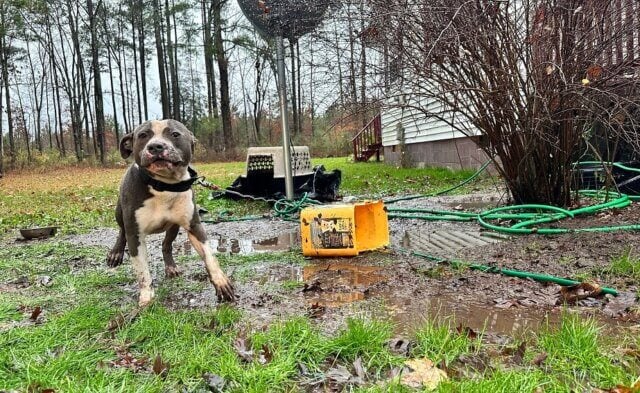Dogs feel pain, love, fear, and joy, just as we do. They need to be included in their family’s activities, sleep in a soft bed, and eat nourishing food in order to thrive.
Almost every day, PETA fieldworkers encounter dogs held prisoner in backyards, spending their lives on a heavy chain while longing for a kind word or a gentle touch.
Isolation and lack of socialization can cause “backyard dogs” to become fearful, mistrustful, and even aggressive. Not only are these desperately lonely dogs deprived of attention and affection, many also have no shelter, are suffering from illnesses or infections, and are left constantly hungry and dehydrated.
No dog should have to endure a life sentence on a chain. PETA’s fieldworkers always urge people to let their dogs live indoors and treat them as family members. If they refuse, our fieldworkers do everything they can to improve the lives of dogs who would otherwise suffer without basic necessities.
With owners’ consent, the team members replace heavy chains—which sometimes weigh as much as the dogs themselves and can prevent them from reaching food or shelter if they become tangled—with lightweight anti-tangle tethers. They also provide comfortable collars; sturdy, insulated, handmade doghouses for shelter; straw bedding for insulation; and other desperately needed accessories and care.
Let’s meet a few of the dogs our fieldworkers have helped.
Gucci
Gucci was tethered outside with nothing but the dirt that surrounded him and a rusty wire cage that offered no protection from wind and rain. PETA’s fieldworkers relocated him to a grassy area and set up a sturdy wooden doghouse. Now, he has a place to escape from the elements, soft grass to roll around in, and a lightweight tether instead of a heavy, oppressive chain.
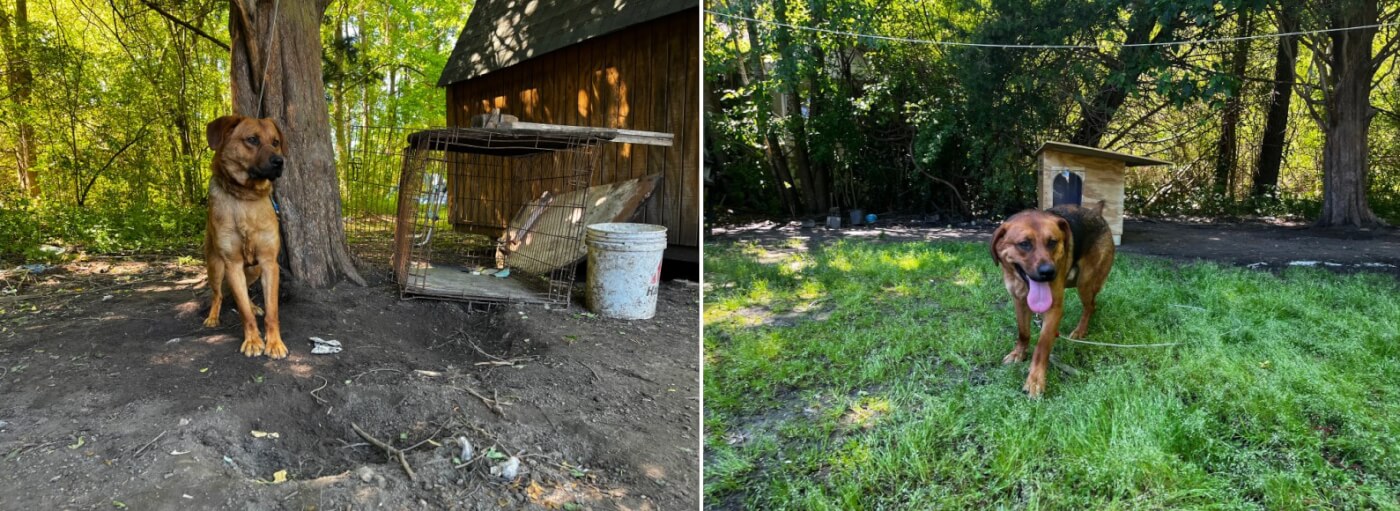
Lady
Lady had spent her life chained amid trash without any shelter. Our fieldworkers cleaned the area, provided her with a sturdy new doghouse to protect her from the elements, and replaced her chain with a comfortable collar and a lightweight tether. Although living outside on a tether is far from ideal, Lady’s life is now a bit more comfortable.
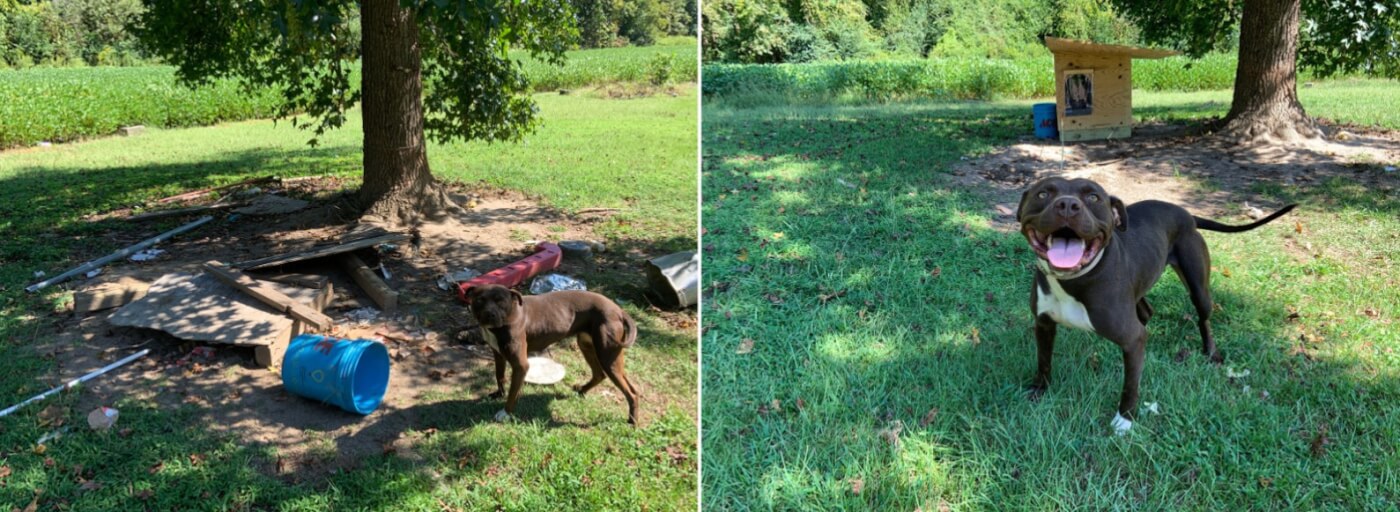
G
G’s old, rotting doghouse was in a muddy, soggy area, leaving him perpetually wet and miserable. His guardians agreed to allow PETA’s fieldworkers to set up a new, sturdy doghouse in a drier area. They also replaced his choke collar (which had put him in danger of strangling if he had become entangled) with a safe, comfortable nylon one and his heavy chain with a lightweight tether.
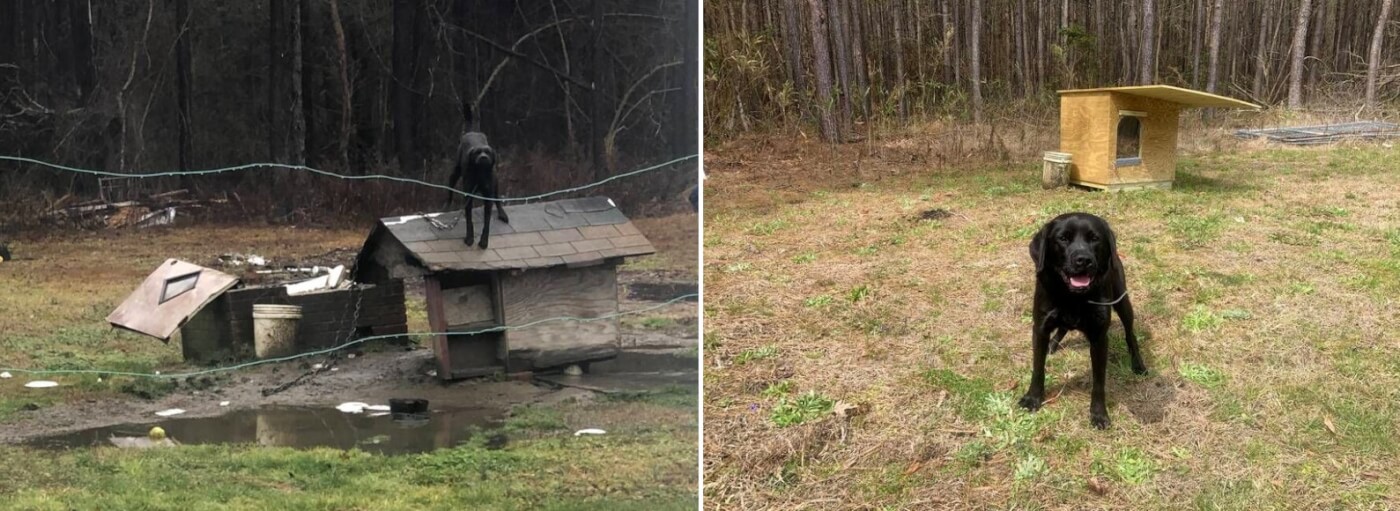
Ace
Ace was chained up in the mud with nothing to protect him from the elements other than a rickety plastic crate. Our fieldworkers set up a sturdy new doghouse for him and replaced his heavy, bulky chain with a lightweight tether. When it rains now, he has a more comfortable place to retreat.
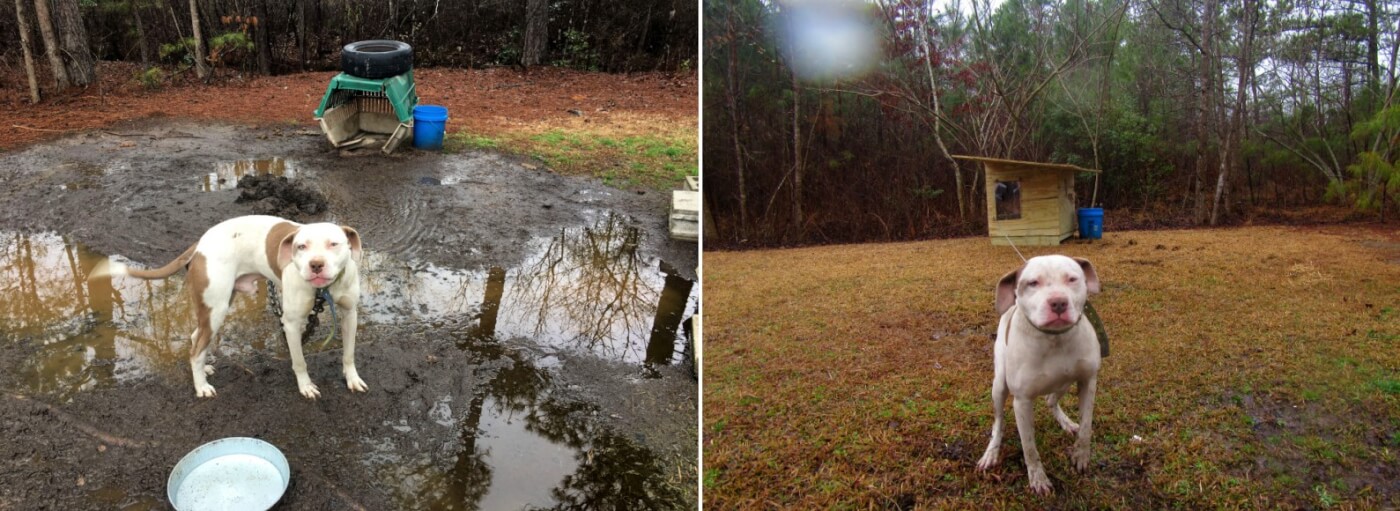
Oreo
Oreo’s tight collar left him with a painful skin infection. After we talked with his owners about the suffering he was enduring, they agreed to surrender him to us for transfer to the Norfolk SPCA. He was quickly adopted and is now living happily indoors with his loving new family.
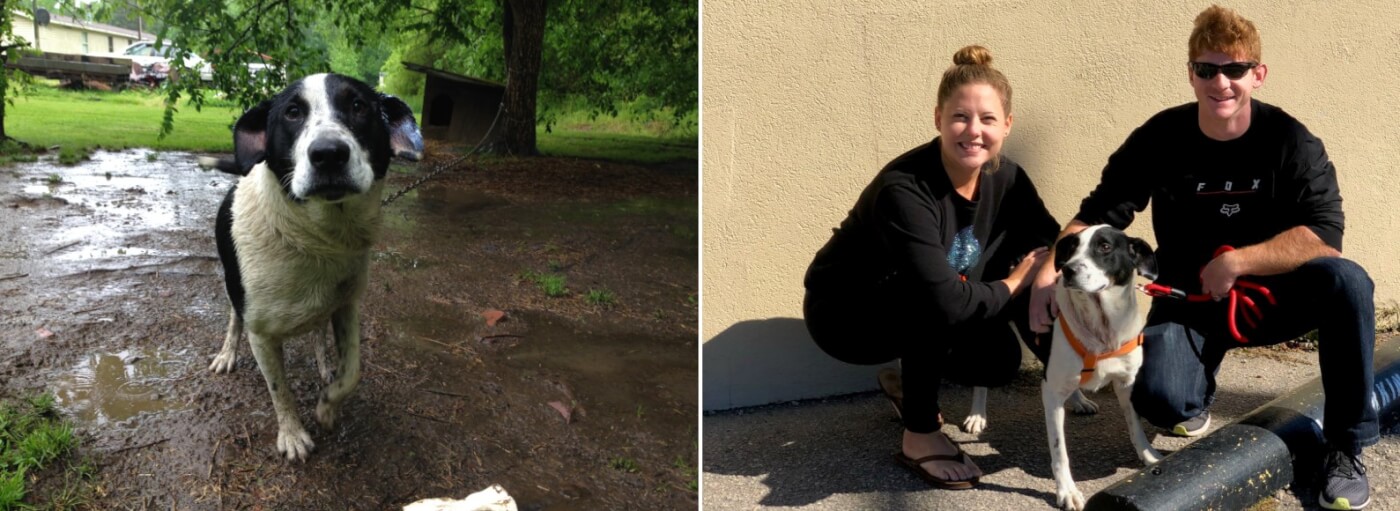
There are many ways you can help chained dogs in your community. If chaining is illegal in your area or if a dog’s life is in immediate danger, report the situation to local authorities right away. If chaining isn’t yet banned in your area, consider working with local officials to enact an ordinance against it. If a dog’s situation isn’t yet an emergency, do your best to talk with the owner to try to improve living conditions.
Push for Anti-Tethering Laws for Dogs Everywhere




